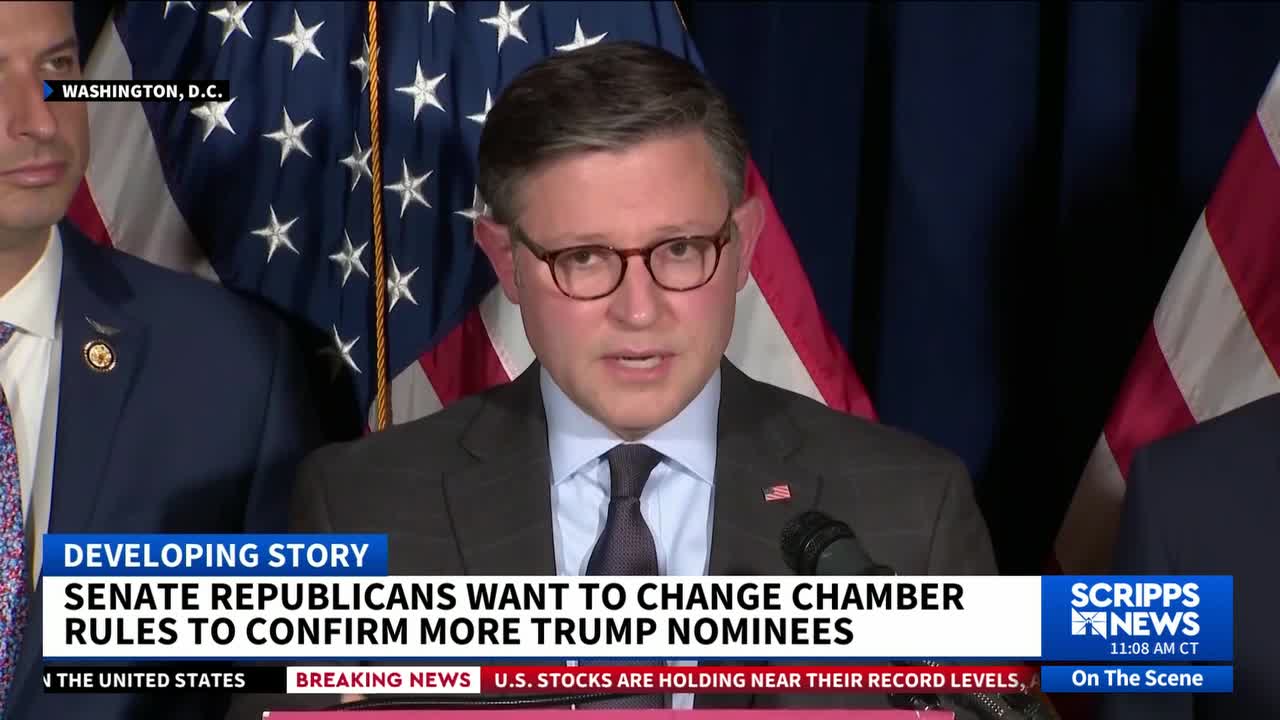Senate Republicans said Tuesday they are ready to change chamber rules to speed up approval of President Donald Trump’s nominees after Democrats blocked nearly all of them.
Republicans want to allow the Senate to confirm multiple nominees for different posts at the same time, rather than holding separate votes for each. GOP leaders argue the change would relieve pressure from the White House and counter what they call obstruction by Democrats.
The move could help confirm ambassadors, U.S. attorneys and other early-term administration appointments more quickly. Some of the stalled nominees are political allies and donors to the president.
Current Senate rules already allow for some changes in procedure, but Republicans are considering a more sweeping shift — a step some call going “nuclear” — to accelerate the process.
IN RELATED NEWS | Senate panel advances Trump ally’s judicial nomination despite Democratic walkout
“The reason I’m going to support it is that presidents do have a right to get an administration and get the people to work with them so they can implement their policy,” Sen. Rand Paul, R-Ky., said. “It also distracts us. We are spending so much time on the nominations that we have, you know, we’re not even going to get the appropriations processed — and that’s not a valid excuse, but at least one excuse for why we’re not paying more attention to spending.”
The change could eventually benefit Democrats, as a future Democratic president would also be able to confirm nominees more quickly. Democrats have not yet said whether they will oppose the plan outright.
The fight over Senate procedure comes less than three weeks before a possible government shutdown. One of those weeks is a scheduled recess, giving lawmakers little time to pass a funding bill.
While Republicans control both chambers, they will likely need Democratic support to pass any funding measure. In both the Senate and the House, some Republicans traditionally vote against such bills, citing concerns over federal spending.
IN CASE YOU MISSED IT | Trump signs a bill funding the government for 6 months, avoiding a shutdown
House Speaker Mike Johnson, R-La., pushed responsibility onto Democrats.
“The Democrats are willing to work with us,” Johnson said. “We have our sleeves rolled up and we want to do this in good faith. We just have to think responsibly how to spend less money than we did last year. And if they’re willing to do that — and it’s incumbent upon all of us to do it with the high national debt — we’re open to that. But the ultimate question of whether there’s going to be a government shutdown at the end of the month is going to be up to congressional Democrats and that’s just the way it is.”
Democrats have criticized proposed cuts to public health care and social service programs, making it unclear whether they will support any Republican funding plan.
This story was initially reported by a journalist and has been converted to this platform with the assistance of AI. Our editorial team verifies all reporting on all platforms for fairness and accuracy.




